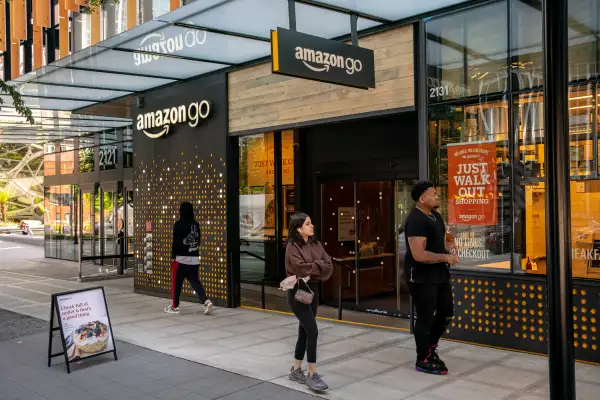Amazon’s Stock Falls as People Finally Leave the House
Money is not a client of any investment adviser featured on this page. The information provided on this page is for educational purposes only and is not intended as investment advice. Money does not offer advisory services.

We're not the same consumers we were a year ago.
More people are heading back out into the world, hitting up bars and restaurants and even jetting off to vacation destinations instead of sitting in our pajamas — and companies are feeling it. In the second quarter of 2021, Amazon’s revenue grew just 27% year-over-year, missing analysts' expectations and significantly slowing down from the second quarter of 2020 when sales soared 40%. The fact that Amazon's annual epic Prime Day sales event took place in the second quarter of 2021 (versus October in 2020) only reinforces the idea that Amazon's revenues were underwhelming.
Amazon shares fell 7% in extended trading after the company reported earnings on Thursday and remained at roughly that level early on Friday.
The company's CFO Brian Olsavsky said on an earnings call with reporters that year-over-year comparisons were difficult because of the pandemic, as customers are now more mobile and have time for other activities, like vacations.
"That’s all good,” Olsavsky said, “But that does tend to lead them do other things besides shop.”
It's no secret that Amazon benefited from the stay-at-home orders that kept us all inside and filling up our online shopping carts when COVID-19 hit the U.S. last year. But Amazon wasn't alone: e-commerce companies like eBay and Etsy saw business boom when we had little to do besides shop. Online shoppers spent $861 billion with U.S. retailers in 2020, a 44% jump from 2019, according to an analysis from Digital Commerce 360.
And while online shopping is an obvious trend that picked up during the pandemic, the fact that we did basically everything at home meant that companies that benefit from us exercising at home and working from home also got a big bump. Peloton's stock rose from $30 per share in January of 2020 to around $120 per share today as people scrambled for a way to stay active. Zoom started off last year around $70 per share and now sits around $385.
A lot of the trends that benefited these companies may stick around. Online shopping, of course, was already well in motion and the pandemic only accelerated the adoption, Jon Ekoniak, partner at Bordeaux Wealth Advisor in Menlo Park, California previously told Money.
But despite the highly contagious Delta variant continuing to spread, consumers seem to be making their way out of their homes and back into society. So companies deemed "pandemic stocks" may not be able to keep up the growth they've gotten used to — as Amazon has proven.
More from Money:
'Pandemic Stocks' Like Peloton and Zoom Have Soared. Is It Time to Sell?
Bitcoin Prices Soar on Speculation Amazon Will Soon Accept Cryptocurrencies as Payment
Trading Crypto Usually Means High Fees, but There Are Ways to Avoid Them
